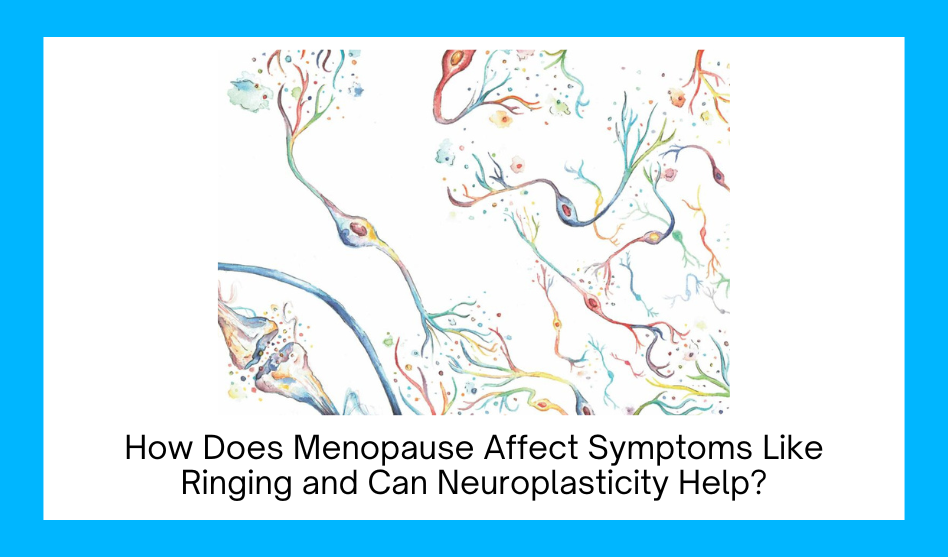A really big yes, is my answer to this question. So, so, so many of my private clients over the years have been women going through menopause, or perimenopause, and really facing changes within themselves, and within their body. And I think where neuroplasticity helps is when we use conscious neuroplasticity and the Rock Steady process, the Rock Steady program, the path is to pause and listen to the body with a sense of reverence and grace and loving awareness. And we’re listening in order to respond in a supportive way to the body. And that’s not just going to impact the vertigo and tinnitus symptoms or sensations, it impacts us as a whole person. So it impacts us with how we set our boundaries, and how we prioritize giving time to ourselves. It can help really nurture and nourish relationships in our family, and with our intimate partners. It can help us stand up at work and speak up for ourselves. So there’s been so many ways that these skills and tools help our behavior and help us understand our body and what we are wanting and needing as this new chapter in life is upon us.
I think what happens without neuroplasticity conscious awareness and without the Rock Steady skills and tools, my clients are often really burdened with old patterns and habits that may have worked okay and served them 10 years ago, but now they’ve outgrown them. It’s not working anymore. Their capacity and resources are feeling stretched. They’re no longer happy and perhaps they need to negotiate new agreements with themselves and with the people they’re living and sharing their lives with. So, it is a new chapter — we’re rebirthing into a new person. It’s a very exciting and beautiful time, especially if we give ourselves the space to listen, to pause, to respond, to support ourselves and above all, to bring a sense of loving kindness in, as we feel through those changes.
And that’s where we have a direct impact on our nervous system and the nervous system is impacting the release of hormones. So the more we can move away from the stress responses, the more we can get healthy, balanced hormones acting on our behalf while we rest, repair, digest, and investigate more of those pleasure pathways — which is a really big part of Module 4 in the Rock Steady program — the better off we’ll be in navigating these changes. So, it’s a pretty long answer. But as our body is changing during menopause, our nervous system is changing alongside it. Our hormones are changing — that definitely goes hand in hand with increases in all forms of symptoms, not just menopausal symptoms, but also anxiety, depression, chronic pain, tinnitus, vertigo — whatever’s lying there in the background is likely to amplify. Using the Rock Steady skills and tools to lovingly listen, respond, and support ourselves helps to tone down the nervous system, balance out the hormones, and help us think more clearly as we navigate a more graceful transition through menopause.

